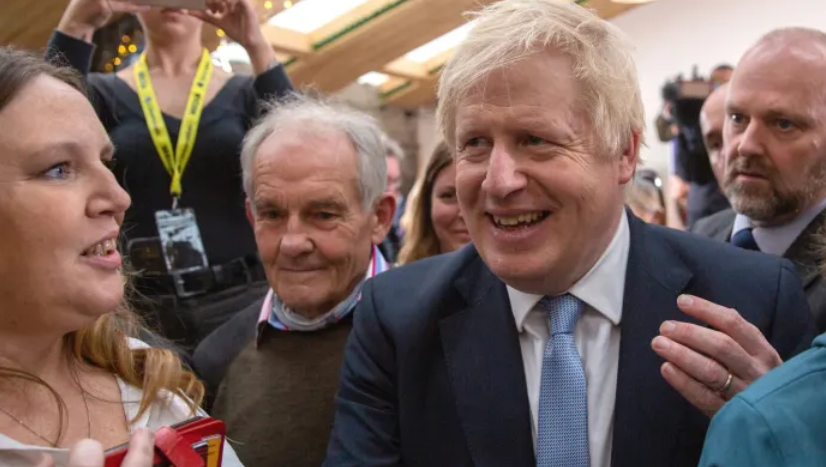ING afvejer chancerne for en Brexit-deal. Banken opstiller flere grunde til en deal og et brud på forhandlingerne, men tror dog, det er mest realistisk med en aftale, selv om tiden rinder ud. Det tæller til fordel for en deal, at to af Boris Johnsons nærmeste rådgivere forlader regeringen, og at Joe Biden har gjort det klart, at UK risikerer at stå isoleret efter et brud på forhandlingerne.
Brexit: Time to reassess the chances of a deal?
Time is running out on UK-EU negotiations, although we still think the odds are stacked in favour of a deal. But nothing is guaranteed, and as we’ve learnt throughout the Brexit process, there’s still scope for unexpected surprises.
After months of deadlock, the outlook for post-Brexit trade talks had started to look decidedly more positive over the past month. But as another week of negotiations comes and goes, it’s clear we’re not there yet, and the same set of core issues that have divided talks for much of this year remain, for the time being, unresolved.
So is it time to reassess the chances of a deal being done before year-end? We still think the odds are stacked firmly in favour of a free-trade agreement being reached, but there are still plenty of ways for things to get derailed. Here are some of the reasons for optimism and pessimism.
Reasons for optimism that a deal can be done
First up, the reported departure later this year of two of prime minister Boris Johnson’s closest advisors – Lee Cain and Dominic Cummings – has, according to Bloomberg, led to a certain amount of tea-leaf reading in Brussels. How much the news will impact the negotiations is guesswork, not least because the UK’s lead negotiator David Frost will reportedly stay in post.
Still, the departure of two key ‘Vote Leave’ advisors has led many to conclude that it will tilt the balance a little more in favour of a deal within Number 10.
Secondly, much has been written this week about the role of the US election result, and again commentators are divided on how much of a difference Joe Biden’s win makes for Brexit. Indeed, we think it’s doubtful that a Donald Trump-victory would have made ’no trade deal’ significantly more likely. That said, a couple of things are relevant.
As was apparently made clear in PM Johnson’s call with the US President-elect, the new administration doesn’t take kindly to the internal markets bill and the issues it potentially poses for stability on the island of Ireland – but also the more general signal it sends about the role of international law in the UK. In the long-term, a ’no deal’ scenario would also risk the UK being politically isolated at a time where the US will seek to rebuild ties with Europe.
Thirdly, there’s the political environment in the UK, which may suggest PM Johnson needs ‘a win’. The pandemic has seen the Conservatives slide in the polls, some of which show the party now trailing Labour.
A ‘no deal’ Brexit is also expected to add further fuel to the Scottish independence campaign, something that is likely to come back to the fore in 2021 ahead of the Scottish parliamentary elections in May. Independence is something Johnson, and many in his cabinet, are keen to avoid.
Lastly, while we’re on the topic of ‘optimistic’ developments, it’s worth highlighting a story from the Irish broadcaster RTE overnight, which suggests the EU is considering a proposal to give supermarkets an initial reprieve on paperwork for goods crossing between GB and Northern Ireland.
The report, which describes this as a ’temporary adjustment period’, may increase hopes that a free-trade agreement, while relatively basic in-and-of-itself, may be accompanied by a wider pool of measures to help cushion the initial blow for businesses. After all, the amount of damage Brexit does to the UK economy next year will in large part depend on how much initial disruption there is.
Reasons for pessimism that suggest ’no deal’ could still happen
First off, the wider political climate doesn’t escape from the fact that the UK government is going to have to make some major compromises if there’s to be a deal. That said, the EU will also need to move too, albeit to a much lesser extent. And the political calculus discussed above will be weighed carefully in Brussels, and that has led one or two commentators to speculate whether it could make some EU leaders less inclined to offer the face-saving compromises Johnson will need to sell his deal domestically.
Whether or not that’s true, it matters because many eurosceptic Conservative MPs are unlikely to take kindly to the compromises the government will need to make. But in light of recent polling, and the perceived handling of Covid-19, further disagreements on Brexit within the Conservative party may end up casting a further cloud over Johnson’s future as leader.
Then there is the sensitive issue of the internal markets bill. The House of Lords overwhelmingly voted to remove the controversial clauses of the bill, that effectively give the government powers to override parts of the withdrawal agreement.
The general consensus is that assuming there’s a deal, the government will walk back on these moves, perhaps arguing that the agreement means the ’safety net’ provided by the bill is no longer needed. But there’s no guarantee this happens, and it’s pretty clear that unless the bill is watered down, the EU will not be inclined to sign-off on a deal.
While we do think the reasons for optimism outweigh those for pessimism, with every week that comes and goes, time is rapidly running out for a deal to be ratified both in London and Brussels.
That said, this is politics at the end of the day and neither side will want to be the one seen to end negotiations.











